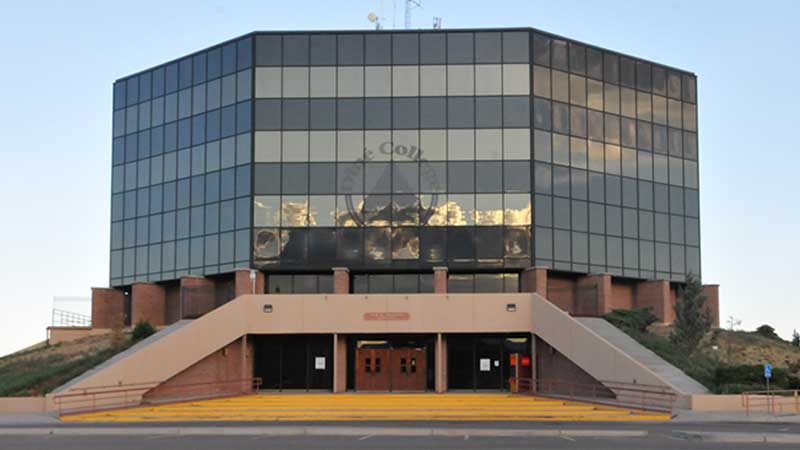Native Americans are almost entirely excluded from cancer clinical trials, according to research conducted by three Dine College students.
By Paul Boyer

Research conducted by Dine college undergraduates Harrison Cayatineto, Gilberta Yazzie, and Chantanielle S. Clyde, working in the Laboratory of Pharmacogenetics and Health Care Disparities under Professor J. Angel de Soto, has resulted in publication of three peer reviewed papers analyzing the participation of Native Americans in cancer clinical trials over the past ten years.
All three papers found that Native Americans are almost entirely excluded from clinical trials, including those related to colon and breast cancer, which may contribute to higher mortality rates for Native Americans diagnosed with cancer.
Harrison Cayatineto’s paper, “The Systemic Exclusion of Native Americans from Cancer Clinical Trials,” published July 29 in the Journal of Medical Research and Health Science, provided a retrospective analysis of 80 cancer clinical trials with a total of 278,470 participants performed within the last ten years. Cayatineto found that “only 42.5 percent of cancer clinical trials reported the ethnic background of participants in their trials”–and only 5 percent reported “the efficacy or toxicology of the therapeutic intervention for ethnic minorities.” While Native Americans make up 1.5 percent of the population they represented only 0.12 percent of the participants that reported ethnicity.
Disparities were especially pronounced in studies related to colon and breast cancer. Gilberta Yazzie’s paper, “Colon Cancer: The Exclusion of Native Americans and Hispanics from Clinical Trials in the United States,” published in the Acta Journal of Medical Science, reported that only two Native Americans could be identified among the 421,530 participants in 48 colon cancer clinical trials conducted within the past decade.
Similarly, Chantanielle S. Clyde’s paper, “The Underrepresentation of Minorities and Non-Generalizability of Breast Cancer Clinical Trials,” which was accepted for publication in the Innovative Journal of Medical and Health Science, found that Native Americans represented just .02 percent of participants in her analysis of 56 clinical trials, with only 21 of the studies reporting the ethnicity of participants.
According to Professor DeSoto, who guided the students’ work and served as a co-author on the papers, lack of representation in clinical trials might explain the disparity in outcomes for Native American cancer patients. While Native Americans are less likely to contract cancer, they have worse health outcomes.
“The therapeutic interventions to treat cancer are determined by the outcome of clinical trials which seek a high efficacy and low toxicity for a particular cancer treatment,” he said. “The efficacy and toxicity are determined by the interplay of the medication with an individual’s biology which differs even within a particular ethnic group. These differences are magnified between ethnic groups.”
Clinical trials that only include one ethnic group may not be generalizable to all groups, he explained. This means a treatment found effective for one group “may not work as well in various ethnic groups”–and may “even be toxic or deadly.”
Professor de Soto, who is a member of the Hopi Tribe, said that the students’ research illustrates the need for Native Americans to conduct their own research, and to take charge of their own health. “It is incumbent for Native Americans to develop their own scientific and medical research programs as for 500 years we have been alone and excluded,” he said. “I am proud of my students to sacrifice so much of their time and effort for the betterment of the Navajo Nation.”
This research reflects Dine College’s growing capacity in STEM research, de Soto said. Founded as a two-year college, the college now offers a growing number of four year degree options. “We are now transitioning to a university with a large research emphasis in the future,” de Soto said. As director of the Laboratory of Pharmacogenetics and Health Care Disparities, de Soto has published over 300 papers and makes the presentation or publication of student research a part of his instructional approach.
Paul Boyer is editor of Native Science Report.
Published September 27, 2021
• • •
Enjoyed this story? Enter your email to receive notifications.
